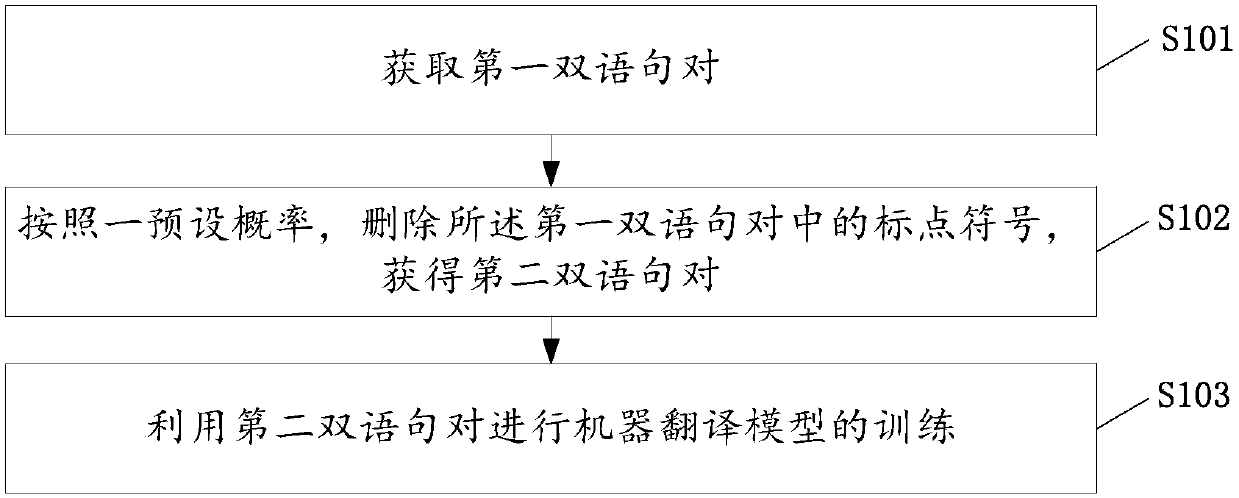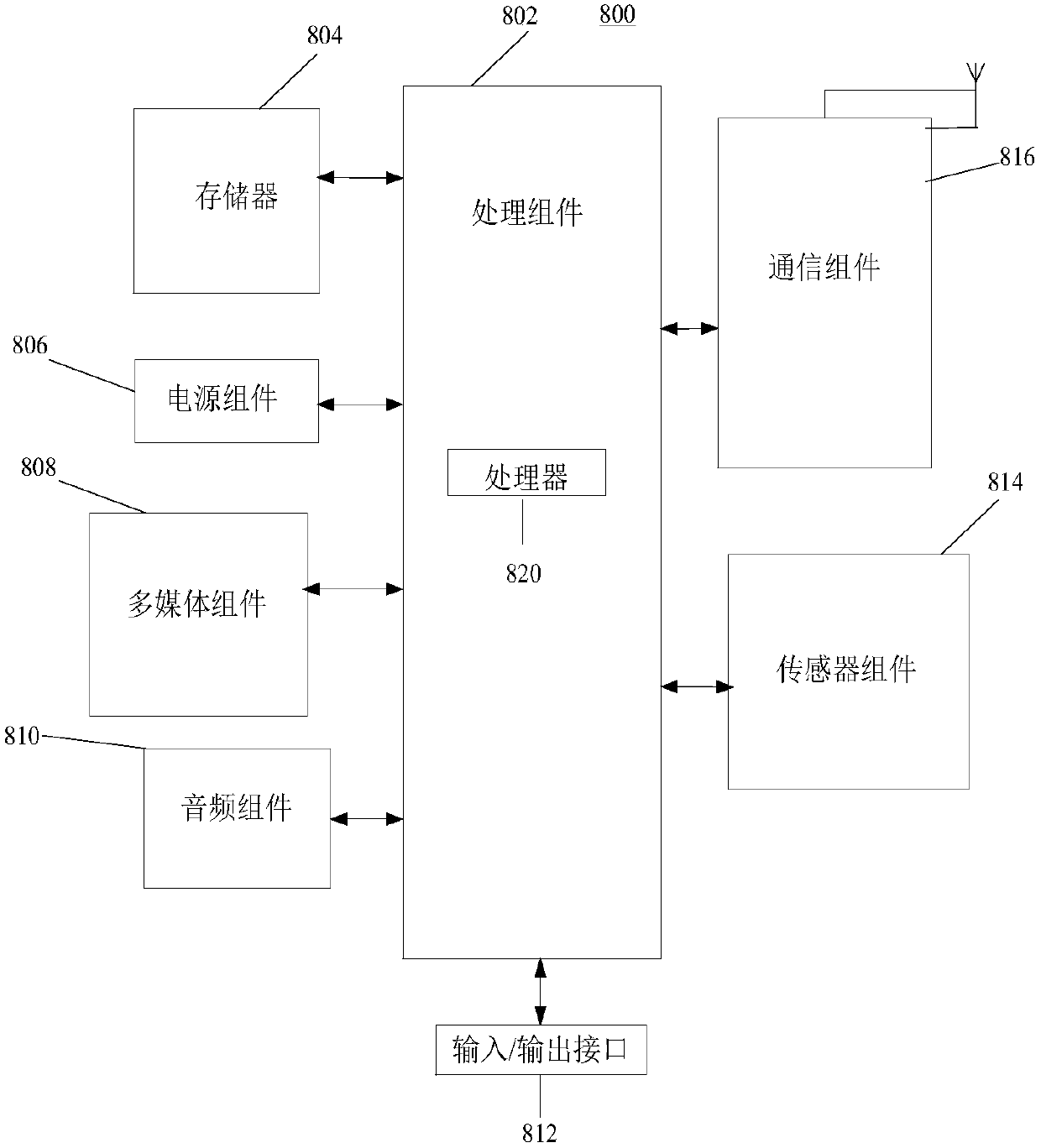Training method and device of a machine translation model
A machine translation and training method technology, applied in the electronic field, can solve the problem of low translation accuracy, and achieve the effect of reducing over-learning, avoiding over-fitting, and solving low translation accuracy.
- Summary
- Abstract
- Description
- Claims
- Application Information
AI Technical Summary
Problems solved by technology
Method used
Image
Examples
Embodiment 1
[0086] This embodiment provides a training method for a machine translation model, such as figure 1 shown, including:
[0087] Step S101: Obtain the first bilingual sentence pair.
[0088] Specifically, the first bilingual sentence pair includes a sentence to be translated (also called a "source sentence") and a translation sentence corresponding to the sentence to be translated (also called a "target sentence").
[0089] In the specific implementation process, when training the machine translation model, a large number of bilingual sentence pairs are needed, wherein each bilingual sentence pair includes a sentence to be translated and a translation sentence corresponding to the sentence to be translated.
[0090] In a specific implementation process, the sentence to be translated may be a sentence in any language, and the sentence to be translated may be a sentence in any other language different from the sentence to be translated.
[0091] For example, during the training ...
Embodiment 2
[0129] Based on the same inventive concept, this embodiment provides a machine translation model training device 200, including:
[0130] An acquisition unit 201, configured to acquire the first bilingual sentence pair;
[0131] A deletion unit 202, configured to delete the punctuation marks in the first pair of bilingual sentences according to a preset probability to obtain a second pair of bilingual sentences;
[0132] The training unit 203 is configured to use the second bilingual sentence pair to train the machine translation model.
[0133] As an optional implementation manner, the first two-sentence pair includes:
[0134] A sentence to be translated, and a translation sentence corresponding to the sentence to be translated.
[0135] As an optional implementation manner, the deletion unit is specifically used for:
[0136] According to a preset probability, delete the first punctuation mark in the sentence to be translated to obtain a second double sentence pair; or ...
Embodiment 3
[0150] Based on the same inventive concept, this embodiment provides a training device for a machine translation model, including a memory, a processor, and a computer program stored on the memory and operable on the processor. When the processor executes the program, it realizes The following steps:
[0151] Obtaining a first pair of bilingual sentences; deleting punctuation marks in the first pair of bilingual sentences according to a preset probability to obtain a second pair of bilingual sentences; using the second pair of bilingual sentences to train a machine translation model.
[0152]As an optional embodiment, the first two-sentence pair includes:
[0153] A sentence to be translated, and a translation sentence corresponding to the sentence to be translated.
[0154] As an optional embodiment, the deleting the punctuation marks in the first bilingual sentence pair according to a preset probability to obtain the second bilingual sentence pair includes:
[0155] Accord...
PUM
 Login to View More
Login to View More Abstract
Description
Claims
Application Information
 Login to View More
Login to View More - R&D
- Intellectual Property
- Life Sciences
- Materials
- Tech Scout
- Unparalleled Data Quality
- Higher Quality Content
- 60% Fewer Hallucinations
Browse by: Latest US Patents, China's latest patents, Technical Efficacy Thesaurus, Application Domain, Technology Topic, Popular Technical Reports.
© 2025 PatSnap. All rights reserved.Legal|Privacy policy|Modern Slavery Act Transparency Statement|Sitemap|About US| Contact US: help@patsnap.com



